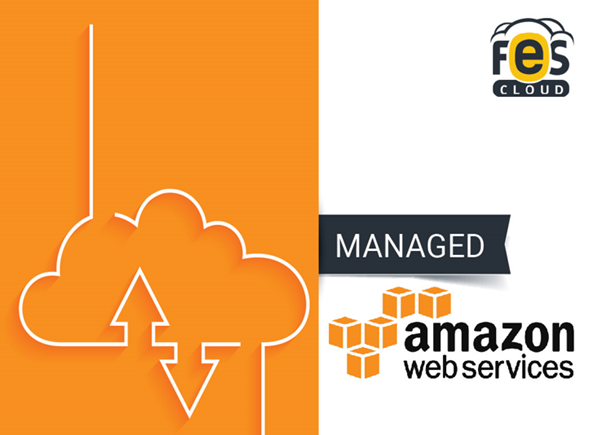Introduction:
Amazon Web Services (AWS) stands tall as a leading provider of cloud computing solutions, offering a vast array of web hosting services. Amidst the myriad possibilities AWS provides, the intricacies of its pricing models present a challenge for businesses and individuals seeking to optimize their web hosting investments. In this extensive exploration, we embark on a comprehensive journey through the multifaceted world of AWS web hosting pricing. Our aim is to unravel the complexities, providing readers with an in-depth understanding of various services, configurations, and optimization strategies. By the end of this comprehensive guide, readers will be well-equipped to navigate the intricacies of AWS web hosting pricing and implement effective cost optimization techniques for their specific needs.
The Rich Tapestry of AWS Web Hosting Services:
AWS boasts a comprehensive suite of web hosting services, each designed to cater to specific requirements. To fully grasp the nuances of AWS web hosting pricing, let’s immerse ourselves in the expansive landscape of key services:
- Amazon EC2 (Elastic Compute Cloud):
- Serving as the backbone of AWS, EC2 offers resizable compute capacity with pricing intricacies tied to a myriad of factors, including instance types, regions, and diverse usage models.
- Amazon S3 (Simple Storage Service):
- S3, a scalable object storage service, introduces a multifaceted pricing structure that encompasses storage class nuances, data transfer costs, and detailed request metrics.
- AWS Lambda:
- Representing the forefront of server less computing, Lambda’s pricing intricacies revolve around factors such as the number of requests and the duration of code execution.
- Amazon RDS (Relational Database Service):
- For managing relational databases, RDS steps in with pricing considerations spanning database engine choices, instance types, and the allocation of storage resources.
A Deep Dive into Key Components of Amazon Web Hosting Pricing:
Unlocking the secrets of amazon web hosting pricing requires an in-depth exploration of the factors influencing costs:
- Instance Type and Configuration:
- The expansive array of EC2 instance types demands strategic selection based on nuanced requirements, including CPU, memory, and storage specifications, directly impacting cost efficiency.
- Region Selection:
- AWS’s global footprint introduces regional pricing variations, necessitating a careful evaluation of the optimal region based on considerations such as latency, redundancy, and overall cost.
- Reserved Instances vs. On-Demand Instances:
- The decision-making process between Reserved Instances and On-Demand Instances involves a nuanced understanding of the trade-offs between upfront commitments and the flexibility required for scaling resources.
- Data Transfer Costs:
- Often overlooked, data transfer costs can wield a significant impact on overall expenses. Strategies to minimize unnecessary data movement and explore Content Delivery Network (CDN) options become paramount.
- Storage Class and Usage:
- S3’s pricing intricacies extend beyond storage class choices to encompass usage patterns, demanding a nuanced approach to balancing performance needs with meticulous cost considerations.
- Lambda Function Execution:
- Optimizing Lambda costs involves delving into efficient coding practices, minimizing code execution duration, and understanding the direct correlation between the number of requests and overall cost.
Strategies for Cost Optimization and Operational Excellence:
Effectively managing AWS web hosting costs demands a proactive approach and the implementation of strategic optimization techniques:
- Utilize AWS Cost Explorer:
- A powerful tool, AWS Cost Explorer, should be regularly leveraged to gain actionable insights into usage patterns, trends, and specific areas for optimization.
- Implement Auto Scaling:
- Given the dynamic nature of web traffic, the implementation of Auto Scaling becomes imperative to ensure optimal resource usage and cost-effectiveness.
- Leverage Spot Instances:
- The utilization of Spot Instances introduces potential cost savings, albeit with the trade-off of potential interruptions, making them suitable for fault-tolerant workloads.
- Monitor and Analyse Performance:
- Deploying robust monitoring tools to track resource performance becomes paramount, enabling the identification of over-provisioned resources and providing avenues for optimization.
- Explore AWS Credits and Savings Plans:
- For new users, AWS credits offer a valuable starting point, while Savings Plans provide flexibility and potential long-term cost savings, making them indispensable considerations for the cost-conscious.
Case Studies and Real-World Applications:
Real-world scenarios provide tangible insights into how businesses optimize AWS web hosting costs:
- Start-up Scalability:
- A detailed exploration of how a start-up navigates its AWS hosting strategy to accommodate the exponential growth in user demand while concurrently optimizing costs.
- E-commerce Optimization:
- A comprehensive case study highlighting how an e-commerce platform strategically adjusts its AWS usage during peak seasons, ensuring cost-effectiveness without compromising on performance.
- Media Streaming Efficiency:
- Uncover the sophisticated strategies employed by a media streaming service to deliver content seamlessly, integrating S3, Cloud Front, and Lambda to optimize costs.
Conclusion:
FES Cloud it transforms into the guiding force that empowers businesses and individuals to navigate the intricacies effectively. By aligning service choices with specific requirements, implementing optimization strategies, and staying abreast of AWS updates, users can harness the full potential of AWS web hosting while keeping costs under meticulous control. Regular monitoring, strategic adaptation, and a nuanced understanding of the AWS pricing ecosystem will empower users to not merely survive but thrive in the complexities, extracting maximum value from their web hosting endeavours. This guide serves as a compass, ensuring a cost-effective, scalable, and future-ready hosting solution.




